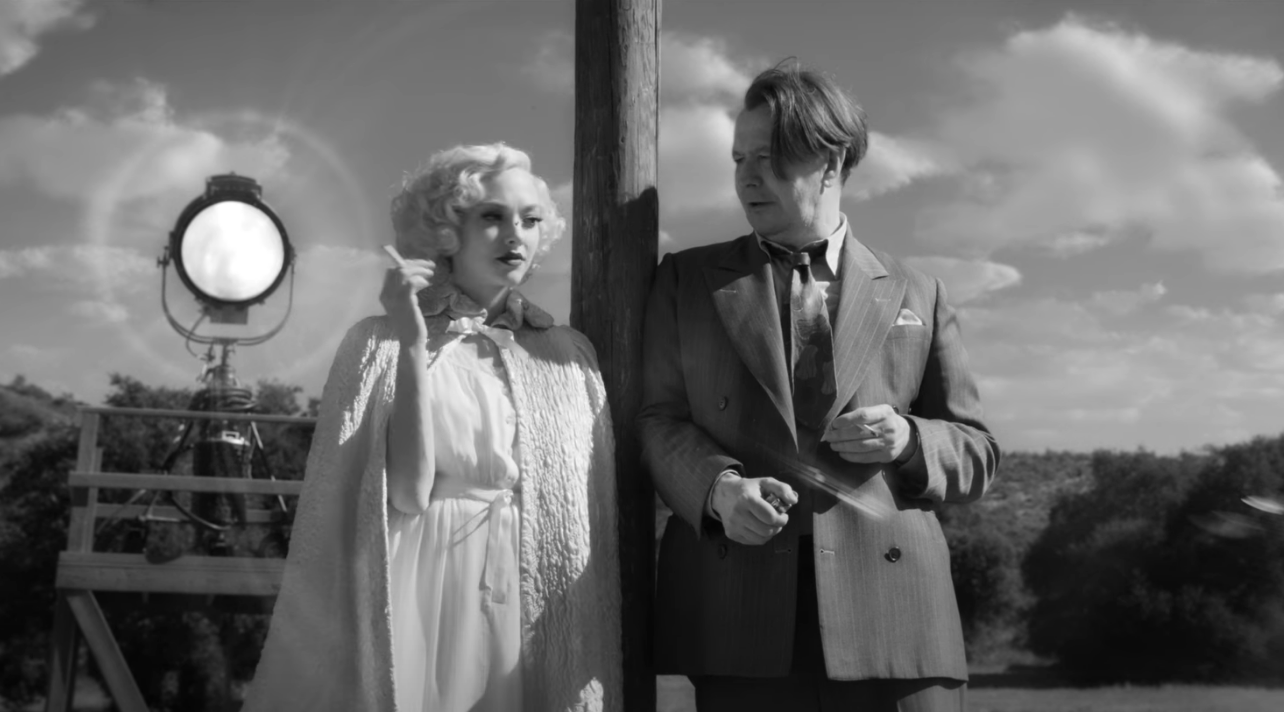'Mank' hates movies and the people who make them
Every ten years since 1952 the British Film Institute has administered its Sight & Sound poll, a worldwide survey of critics to determine the 100 greatest movies ever made. Citizen Kane, Orson Welles’ 1941 masterwork, won the poll every decade for 50 years, a remarkable run of universal acclaim. (It now sits at #2, behind Alfred Hitchcock’s Vertigo.)
The film has come to be seen as the standard-bearer for capital-I Important Cinema, movies so brilliant that they are truly meaningful to the world. Citizen Kane happens to be President Trump’s favorite movie, which is a nice shorthand for its place in history: if you have no idea what you’re talking about but want to project an air of intelligence, simply reference Citizen Kane.
Suffice it to say that David Fincher’s Mank, streaming now on Netflix, does not fall in lockstep with this sentiment. Mank follows Citizen Kane screenwriter Herman Mankiewicz (Gary Oldman), jumping between his writing of the film in 1941 and his odyssey through the politics of the 1930s Hollywood studio machine. No, Fincher does not critique the quality of Citizen Kane itself; every character that read’s Mankiewicz’s script tells him it's spectacular. Mank denounces the belief in Hollywood’s greatness in a larger sense, painting a portrait of an invective industry out of which nothing good could truly be produced.
This larger thematic arc of the film might not be accessible, however, if you don’t care about the inside baseball of Old Hollywood. Fincher, ever the perfectionist, digs into the minutiae of topics like how Louis Mayer (Arliss Howard) ran MGM, or Upton Sinclair’s (Bill Nye!) incendiary run for governor of California. At times it can be interesting; often I found myself wondering if I’d get more out of it if I simply read a book. Mank pays a curious amount of detail to an industry it purports to loathe; even though it’s a cynical look at Hollywood, it’s hard not to see Fincher marveling at the spectacle.
At the center of it all is Mankiewicz, played by Oldman as a detached, often drunk observer of Hollywood’s shortcomings, quick to point out the failures of the industry but uninterested in addressing his own. He’s a scallywag, charming everyone around him while also pushing their buttons. Fincher supplies Mankiewicz with a completely unironic “I don’t know why I put up with you” wife character (played admirably by Tuppence Middleton) to drive this character trait home.
What is not as clear about Mankiewicz is whether he is the hero of this story, and this tension is the most notable achievement of Mank. Is he an artist or a cog in a capitalist structure? Is he a virtuous crusader trying to do good or a willing participant in a deceptive enterprise? Fincher might as well be targeting these questions at himself, a man who directed Gone Girl and this Gap commercial within a month of each other.
Mank wants Mankiewicz to land as a fool with integrity or, as William Randolph Hearst (Charles Dance) tells him at the end of a memorable sequence, “a deluded old nobleman who tilts at windmills.” But by putting him in nearly every frame of the movie and portraying him as fundamentally decent, Fincher can’t help but make him the hero, albeit a tragic one.
More tragic than the arc of Mankiewicz is the limited screen time devoted to his friendship with actress Marion Davies (Amanda Seyfried). Seyfried is magnificent, just as she has always been throughout her career, whether going big (Mean Girls, Mamma Mia!) or withdrawn (First Reformed, Mank). Everyone in Mank is playing caricature, but she’s the only one who’s able to do so while also developing a fully realized individual. Her meticulous annunciation, her careful Brooklyn accent, the guileless looks she throws Mankiewicz’s way—it’s a superb performance. But as with Erica Albright (Rooney Mara) in The Social Network, an outstanding performance by a female star is mostly incidental to Fincher’s vision.
Thankfully, one piece we do get throughout the entire film is one of the best things about Mank: the score from frequent Fincher collaborators Trent Reznor and Atticus Ross. It emulates 1940s Hollywood while also feeling completely modern. Reznor and Ross have an uncanny ability to match Fincher’s tenor across distinct genres.
Mank is unlikely to find a place on the Sight & Sound list, but it will certainly find its way to the Academy Awards, the preeminent bastion of Hollywood’s love for itself. I liked Mank, though perhaps not on the level of what one would hope for in a Best Picture winner. I would find it immensely amusing, however, for a movie that rails so hard against the sanctity of Hollywood to become cemented within its most hallowed canon. The film itself ends with the real-life audio of Welles discussing Citizen Kane’s Oscar screenplay win at a ceremony he didn’t bother to attend. Fincher seems to be winking at the potential future success of Mank: give us whatever award you like, but none of this means much at all.

